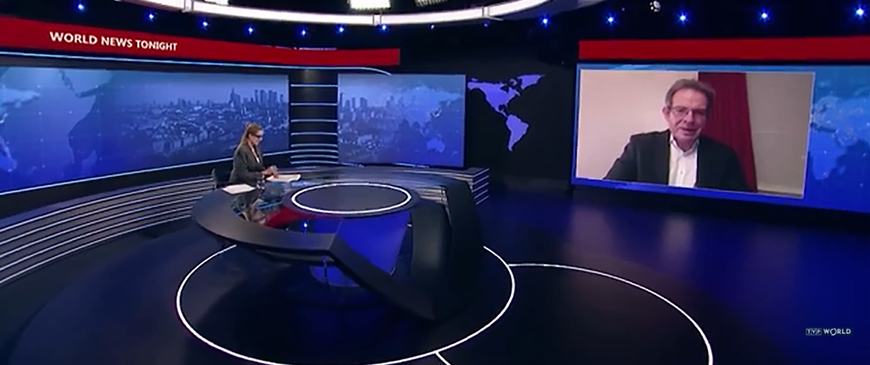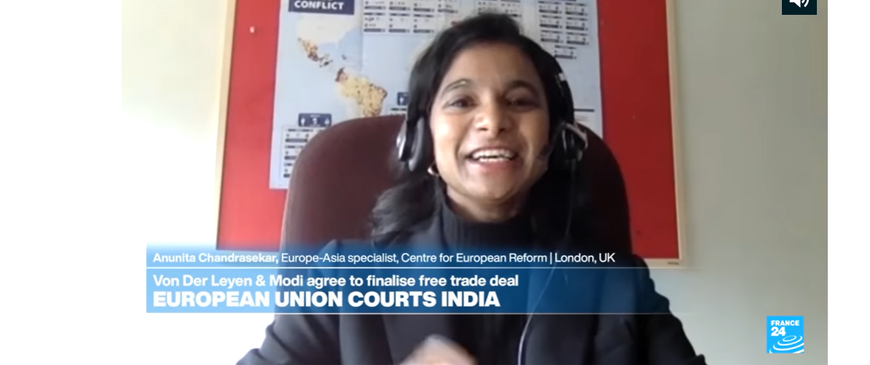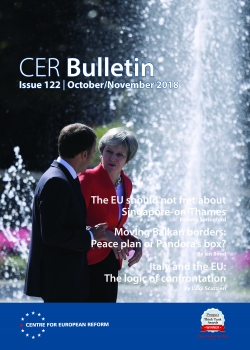Press
Pro-Europe think-tank says Brexit has cost Britain £26 BILLION
01 October 2018
The Express
A pro-Europe think-tank has said Britain suffered a £26billion blow to the economy annually after the nation voted Brexit. The report by the Centre for European Reform said this was the equivalent to £500million a week - even though the nation is yet to unshackle itself from the bloc.Experts said the UK economy was now 2.5 percent smaller today than if the nation had voted to remain in the bloc.
Le Brexit coûte plus cher que l’UE
01 October 2018
EurActiv
Le Brexit coûte plus cher à Londres que sa participation à l’UE. Soit 560 millions d’euros par semaine. Et le soutien des conservateurs à leur gouvernement faiblit. La décision du Royaume-Uni de quitter l’Union européenne coûte 500 millions de livres (560 millions d’euros) par semaine à l’État britannique, ce qui efface pour le moment d’éventuelles économies provenant d’un arrêt de ses contributions à Bruxelles, selon les conclusions d’une étude publiée le 30 septembre.
Le Brexit a coûté au Royaume-Uni 500 millions de livres par semaine
30 September 2018
La Tribune
Le Centre for European Reform (CER) explique que son analyse est basée sur l'étude de 22 pays avancés dont les caractéristiques correspondent à celles de la Grande-Bretagne et qui n'ont pas voté pour quitter l'UE. Ces données ont ensuite été comparées à la performance économique réelle de la Grande-Bretagne depuis le référendum.
Machtkampf bei den Tories
30 September 2018
Tagesschau
Einer Forschergruppe des "Centre for European Reform" zufolge kostet der Brexit Großbritannien jede Woche 500 Millionen Pfund (umgerechnet 560 Millionen Euro). Die Einsparungen durch wegfallende Zahlungen an die EU würden dadurch wieder zunichtegemacht - zudem sei die britische Wirtschaftskraft durch die Abstimmung im Juni 2016 um etwa 2,5 Prozent gesunken.
Depuis 2 ans, le Brexit a coûté 52 milliards de livres au Royaume-Uni
30 September 2018
Le Point
L'impact sur l'économie du pays provoqué par la sortie de l'UE suscite donc un important débat au Royaume-Uni, sur lequel partisans et opposants au départ tentent de s'appuyer. Selon le Centre for European Reform (CER), un groupe d'études spécialisé sur l'Union européenne, la taille de l'économie britannique est environ 2,5 % inférieure à ce qu'elle aurait été si le « oui » au maintien dans l'UE l'avait emporté lors du référendum de juin 2016.
Tories 'risking reputation for economic competence' over handling of Brexit, poll finds
30 September 2018
Politics Home
A fresh analysis of Brexit by the Centre for European Reform think tank meanwhile warned that the UK's public finances have already taken a £500m-a-week hit since the 2016 vote. The study claims that the UK economy is now some 2.5% smaller than it would have been if Remain had triumphed.
Chequers goes pop
30 September 2018
The Sun
A study yesterday revealed that Brexit is already costing the public purse £500m a week. The Centre for European Reform’s analysis found the UK economy is already 2.5% smaller than it would have been had Remain won the referendum.
Theresa May opens door to Brexit climbdown as she signals she's ready to compromise with EU
30 September 2018
The Mirror
Meanwhile, research by the Centre for European Reform put the cost of Brexit to the taxpayer at £500million a week.The economy is about 2.5% smaller than it would have been if the public have voted to Remain in June 2016, it said.Treasury coffers have been dented by £26billion pounds a year - the equivalent of £500million pounds a week, researchers added.
Brexit costing UK £500M a week, study says Brexit vote caused £26 billion annual loss to the UK economy, according to the Centre for European Reform
30 September 2018
Politico
The British economy is 2.5 percent smaller today than if the UK had voted to remain in the European Union, according to the Centre for European Reform, a think-tank. In a report published Sunday, the think tank said the UK suffered a £26 billion blow to the economy annually, equivalent to £500 million a week, without yet having formally left the bloc.
Brexit has cost UK 500 million pounds a week
30 September 2018
The Wire
The Centre for European Reform, a research group that focuses on the European Union, said the British economy is about 2.5 percent smaller than it would have been if the public have voted to remain in the bloc in June 2016. Its findings were based on the impact on the economy until the end of June 2018.
Brexit has cost Britain £500 million a week, study claims
30 September 2018
The National
The Centre for European Reform, which describes itself as “pro-European but not uncritical”, said it created a model of how Britain’s economy could have performed had the campaign to remain in the EU won the referendum in 2016. The group said its analysis was based on 22 advanced economies whose characteristics closely matched Britain and that did not vote to leave the EU. They then compared it with Britain’s actual economic performance since the vote.
Brexit costing Britain £500m a week and rising, says report
29 September 2018
The Observer
Brexit is already costing the public purse £500m a week, new research has found – a stark contrast to the £350m “dividend” promised by the Leave campaign. The Centre for European Reform’s analysis also suggests that the government’s austerity drive would be on the way to completion had Britain voted to stay in the European Union.
There’s nothing ‘super’ about Boris Johnson’s tired old Brexit ideas
28 September 2018
The Guardian
If Boris Johnson puts pen to paper and it doesn’t get on the front page of the Telegraph, did it really happen? I guess we’ll never know.
CER Bulletin podcast: Singapore-on-Thames; the Western Balkans; Italy
28 September 2018
In the CER Bulletin podcast, CER researchers brief podcast listeners on three of the most important topics for Europe this month.
Predictable unpredictability: The future of euro-atlantic security?
27 September 2018
Riga Dialogue
A participant in this year’s Riga Dialogue began his presentation by saying that Russia was now more predictable than the US or the EU. It was designed to be provocative, but it was an accurate reflection of reality.
Unpredictability has become an important risk factor in the Euro-Atlantic area. Two of...
Unpredictability has become an important risk factor in the Euro-Atlantic area. Two of...
Why not join a customs union?
27 September 2018
BBC News
As Sam Lowe, a trade expert at the Centre for European Reform, has written: "The UK is an intermediary manufacturer - one that imports to export - and the EU is, and will remain, the UK's most important trading partner". Reducing border friction is a reasonable ambition.
But one of Labour's six tests is that Labour says it must deliver the "exact same benefits" as we currently have as members of the single market and customs union. This proposal would not do that.
But one of Labour's six tests is that Labour says it must deliver the "exact same benefits" as we currently have as members of the single market and customs union. This proposal would not do that.
Trump’s trade demands add to May’s Brexit woes
26 September 2018
Politico
Sam Lowe, a senior research fellow at the Centre for European Reform, said the idea of the Chequers plan is that the UK would run two tariff regimes at the border — the EU’s and the UK’s.
Brexit bulletin: Solving Salzburg
25 September 2018
Bloomberg
The summit in Austria may have killed off her so-called Chequers exit plan, but May can still avoid a disastrous no-deal Brexit, according to the Centre for European Reform. Still, it will require some tough choices on the Irish backstop, the group said.
Brexit briefing: How to salvage the Brexit negotiations
25 September 2018
Financial Times
“A long-term customs union would reduce the number of checks necessary between Northern Ireland and Great Britain, since tariffs and rules of origin would not be an issue. And, as tempers cool over time — and if the wave of populism that currently threatens the EU recedes — it may be possible to bolt on shared rules and standards to the customs union, so that it gets closer to membership of the single market in goods. This strategy would amount to a ‘de-dramatisation’ of Chequers in order to make it more palatable to the EU, but it would not remove the need to agree a backstop.” (Sam Lowe and John Springford of the Centre for European Reform)
Brexit weekly briefing: May picks herself up after Salzburg bruising
25 September 2018
The Guardian
The bloc is counting on Britain rewriting its red lines when push really comes to shove and it is confronted with the imminent prospect of a no-deal Brexit. They could well be right and, as the Centre for European Reform’s John Springford and Sam Lowe write, there are ways for May to do that without “breaking up” the UK.










